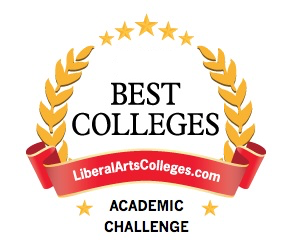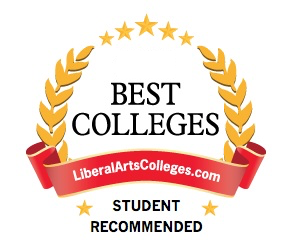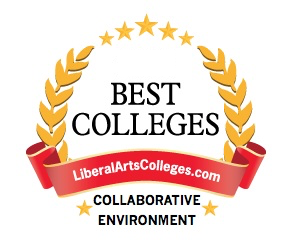
Photo by: Esther Chen. Retrieved from: www.coloradocollege.edu
Colorado College is ranked among the top tier of liberal arts colleges in the United States, and based on the massive number of applicants yearly, most high school seniors and their parents agree. Colorado College prides itself with having a very high retention rate, which tells of the student satisfaction in the academic program and the quality of life in campus.
In Colorado College, a student can choose from more than 80 majors, minors, and specialized programs. Some of the special programs are Southwest studies, gender studies, Latin American studies, Russian and Eurasian studies, and American cultural studies. There is also a writing program for all students. This college is also known as a producer of world-class teachers through the graduate program that enables educators to obtain their Master of Arts in Teaching (MAT) degree.
Colorado College is unique because there is an unconventional block plan in place. In this plan, students can study one subject for nearly a month (blocks). The students that benefitted from this plan claim to have more laboratory time freed up because of the intensive month-long concentration on one topic. There are very few distractions because the student can concentrate on one subject for the duration. Under this scheme, the professors are also required to teach one block. Class sizes are kept small, with approximately 25 students.
School History
In 1874, Colorado College was founded by Thomas Nelson Haskell on a property donated by U.S. Civil War veteran General William Jackson Palmer. General Palmer, who founded the Denver and Rio Grande Railroad, donated a plot of land for Colorado College and pledged to fund the school. Colorado College was thus established a couple of years prior to Colorado’s statehood. The first building, Cutler Hall, was finished in 1880 and the first batch of graduates was obtained degrees in 1882.
Re-construction efforts after the Second World War led to the addition of new architecture in the college. Stone buildings became the norm, and some of these were burned in fires during the 1950s and 1960s. In 1962, new structures were added, including the Tutt Library, a structure designed by the same builders and designers of the United State Air Force Academy. The college expanded, gradually acquiring buildings of historic significance in adjacent areas, like Haskell House and Arthur House, which were subsequently used as residence halls. The former Plaza Hotel has been converted into an administrative building, the Spencer Center.
Campus Life
Colorado College attracts intellectuals as well as individuals with diverse skills and interests. Many of those that enroll soon discover outdoor recreation in the beautiful state, as well as live music and standup comedy. Colorado Springs is a joy to live in and there are plenty of opportunity to learn hiking, climbing and biking. It is not surprising that there is a student-run Outdoor Recreation Committee that facilitates backpacking excursions and skiing trips. There are plenty of outdoor sports to try such as kayaking and ice climbing. There are music festivals on campus, and students can participate in all of them. The greek organizations are few but active, and they make socializing on campus exciting and fun. Freshmen students are required to do community service for four days prior to their official entrance to the college. This usually involves distributing food to the local poor during the weekend.
Colorado college is residential, and many students opt to stay in campus rather than chance it elsewhere. Students live close to the campus in designated student housing which is composed of traditional dorms, mansions with historic relevance and modern apartments.
Most students and their parents like the block system, which offers a lot of advantages for a studious college student. Once the subject is over, one can relax for a while and start the next block refreshed. The scheduling of the classes lets students concentrate. Students compare the block system to intensive summer classes.
Financial Aid
Need-based aid is the norm in most colleges, and Colorado College is no different. Demonstrated financial need is the foremost factor that will be considered when the college aid office assesses what kind of financial package to offer an applicant.
Rankings
2017 College Rankings



